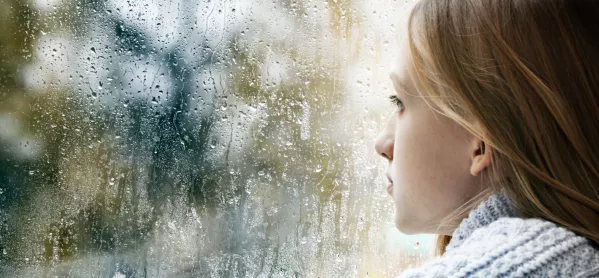A Scottish education charity has launched a research project to understand the impact of the coronavirus pandemic on young people’s wellbeing.
Time for Inclusive Education (TIE), known for its campaign to introduce LGBT-inclusive education in schools and work addressing prejudice-based bullying, is seeking the views of young people aged 12 to 24 across Scotland.
The research - launched as Unicef warns that young people across the globe are at increased risk of harm online - will assess the impact of the lockdown on emotional wellbeing, the availability of online services and resources, and whether there has been any change in online bullying or prejudice since the pandemic began.
Coronavirus: ‘More important than ever’ to be aware of online risk to mental health
Mental health: An open letter to locked-down teenagers
Coronavirus and school closures: 7 ways to help pupil mental health
TIE campaign: Scotland claims ‘world’s first’ inclusive LGBTI education
The charity recently launched a resource for parents and teachers to help primary school pupils understand and identify discrimination, after reports of prejudice against a minority of communities in the aftermath of the coronavirus outbreak.
Coronavirus: Concerns about pupil wellbeing
TIE co-founder Liam Stevenson, the parent of an eight-year-old himself, said: “This is a very difficult time for everyone, and we are keen to understand the impact that the Covid-19 pandemic, and the consequential closure of education establishments, is having on young people across Scotland - with a particular focus on emotional wellbeing, the availability of digital services, instances of online bullying behaviours and rates of prejudice across online spaces.
“We recognise that there have been some anecdotal reports of instances of prejudice since the outbreak of the virus, and we expect that many young people will be spending more time online.”
He added: “Responses to this survey will support the research and development of services and resources for young people and education establishments in the aftermath of this pandemic.”
The launch of the research comes on the same day that Unicef has issued a technical note urging governments, parents and educators to be aware that children and young people are at greater risk from cyberbullying and exposure to harmful content online.
Dr Howard Taylor, executive director of the Global Partnership to End Violence Against Children, said: “School closures and strict containment measures mean more and more families are relying on technology and digital solutions to keep children learning, entertained and connected to the outside world, but not all children have the necessary knowledge, skills and resources to keep themselves safe online.”
Young people aged 12 to 24 across Scotland can participate anonymously in the TIE research by clicking on this link.




